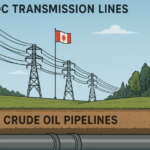Empowering Off-Grid Living: How Energy Storage Makes a Difference
The Rise of Off-Grid Living
Off-grid living has gained popularity in recent years, as more and more people seek independence from the grid and a chance to live sustainably. Off-grid living refers to living without reliance on the traditional grid, where residents generate their own energy using renewable sources such as solar, wind, or hydro power. However, for off-grid living to be truly effective, energy storage is a crucial component that enables residents to store excess energy generated during the day for use during the night or during periods of low energy production.
Why Energy Storage is Vital for Off-Grid Living
Meeting Energy Demands
Off-grid homes require energy storage systems to meet the demands of modern living. Energy storage allows residents to store excess energy generated during the day for use during the night, when natural light is limited. Without energy storage, off-grid homes would be limited to the amount of energy they can generate during the day, making it difficult to meet the demands of daily life.
Powering Appliances and Lighting
Energy storage enables off-grid residents to power appliances and lighting throughout the day and night. This means that off-grid homes can have modern appliances, such as refrigerators, washing machines, and televisions, as well as adequate lighting for daily activities.
The Benefits of Energy Storage for Off-Grid Living
Increased Energy Independence
Energy storage allows off-grid residents to increase their energy independence by storing excess energy for use during periods of low energy production. This means that off-grid homes are less reliant on the grid and can continue to operate even during periods of low energy production.
Reduced Energy Consumption
Energy storage enables off-grid residents to reduce their energy consumption by storing excess energy generated during the day for use during the night. This reduces the need for external energy sources, such as generators, and minimizes the carbon footprint of the home.
Simplified Energy Management
Energy storage systems provide a simple and convenient way to manage energy in off-grid homes. The system can be programmed to charge and discharge energy at optimal times, ensuring that the home is always well-lit and powered.
Types of Energy Storage for Off-Grid Living
Batteries
Batteries are one of the most common types of energy storage used for off-grid living. Lithium-ion batteries are particularly popular due to their high energy density and long lifespan.
Power-to-Gas Systems
Power-to-gas systems convert excess energy into methane or hydrogen, which can be used to power homes or transportation.
Flow Batteries
Flow batteries are an alternative to traditional batteries and are particularly suitable for large-scale energy storage applications.
Conclusion
In conclusion, energy storage is a vital component of off-grid living, enabling residents to meet their energy demands and live sustainably. The benefits of energy storage, including increased energy independence, reduced energy consumption, and simplified energy management, make it an essential consideration for anyone looking to live off the grid.
FAQs
Q: How much energy storage do I need for off-grid living?
A: The amount of energy storage required depends on various factors, including the size of the home, energy consumption patterns, and available renewable energy sources.
Q: What is the best type of energy storage for off-grid living?
A: The best type of energy storage for off-grid living depends on individual circumstances. Batteries are a popular choice, but power-to-gas systems and flow batteries may also be suitable.
Q: How do I know if my off-grid home needs energy storage?
A: If you experience frequent power outages or struggle to meet your energy demands during the night, you may benefit from energy storage.
Q: Are energy storage systems expensive?
A: Energy storage systems can be expensive, but the costs are decreasing as technology improves. Additionally, the long-term benefits of energy storage, including reduced energy consumption and increased energy independence, make it a worthwhile investment.




.png?w=150&resize=150,150&ssl=1)


